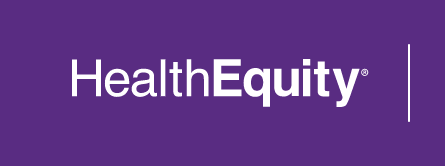Sure, you plan to retire someday. But it seems far in the future so you haven't pushed retirement planning to the top of your priority list. Even if your retirement date seems distant, it's a good idea to bump your plans higher up on your to-do list. Now is the time to start planning. In fact, when it comes to building a nest egg (the money you set aside for the future), the earlier you invest, the better your chances of reaching your retirement goals.1
If you haven't started saving for retirement yet, you're not alone. Recent research reveals that about one in four Americans have less than $5,000 in retirement savings and 15 percent currently have zero retirement savings. Don't stress. It's never too late to get started. And your starting place may be something you already own-your health savings account (HSA). Remember, you own your HSA and there isn't a deadline for spending your funds. Many people contribute to their HSA to save for healthcare in retirement. Here's how:
1. Cover future healthcare costs
Healthcare costs are on the rise. According to recent estimates, the average couple that retires today will need $300,000+ just to cover out-of-pocket medical expenses during retirement. If you don't plan to retire anytime soon, this likely means you'll need to save even more. While programs like Medicare can be helpful for retirees, they may not cover all your healthcare needs. And you'll still need funds to pay for your premium just like for your current health insurance.
As you plan for retirement, think of your HSA as your healthcare nest egg. To get the most out of your HSA, max out your HSA funds as much as your budget allows and make sure to invest those funds to potentially build long-term retirement savings.
2. Potentially get ahead with tax advantages
When it comes to retirement, the 401(k) often comes to mind as a key way to grow savings. But your HSA is equally as powerful, offering similar investing opportunities plus several tax advantages you won't find anywhere else.2 Adding HSA investing to your existing retirement strategy is a savvy way to potentially maximize your retirement savings.
How do HSA tax advantages work?
Your HSA has the same tax benefits of a 401(k) with a few additional perks. For example, HSA contributions are not subject to 7.56% FICA payroll taxes as with a 401(k). So your HSA funds will actually go further than your 401(k) contributions, helping you save faster.3 There's also no minimum distributions required with HSAs, so you can add funds to your account at your own pace.
3. Optimize your retirement strategy
If your organization offers incentives for using an HSA, such as an annual seed contribution or HSA match contribution, you can get even further ahead on your retirement by taking advantage of these programs. Sometimes the match offered is dollar-for-dollar, so it's an easy way to double your contributions.
Which to prioritize first: HSA or 401(k)?
If both an HSA and a 401(k) can be used for investing, how do you choose which one to invest in first? It might sound surprising, but it may be best to maximize your HSA contributions before your 401(k) contributions. HSA limits have a lower contribution limit. (It's currently capped at $3,650 for individuals and $7,300 for families annually for the 2022 tax year, with an additional $1,000 for members aged 55+.)
By focusing on your HSA, you can invest the same amount you would have in a 401(k), but you'll avoid having to pay FICA payroll taxes if contributions are made through payroll deduction.
Get retirement ready
Everything you need to save for retirement is right at your fingertips. The more you contribute to your HSA and build your nest egg, the greater your peace of mind will be. For more information, watch a short video-HSAs: The new retirement strategy.
1Investments are subject to risk, including the possible loss of the principal invested, and are not FDIC or NCUA insured, or guaranteed by HealthEquity, Inc. Investing through the HealthEquity investment platform is subject to the terms and conditions of the Health Savings Account Custodial Agreement and any applicable investment supplement. Investing may not be suitable for everyone and before making any investments, review the fund's prospectus.
2HSAs are never taxed at a federal income tax level when used appropriately for qualified medical expenses. Also, most states recognize HSA funds as tax-deductible with very few exceptions. Please consult a tax advisor regarding your state's specific rules.
3After age 65, if you withdraw funds for any purpose other than qualified medical expenses, you will be subject to income taxes. Funds withdrawn for qualified medical expenses will remain tax-free.
HealthEquity does not provide legal, tax or financial advice. Always consult a professional when making life-changing decisions.


